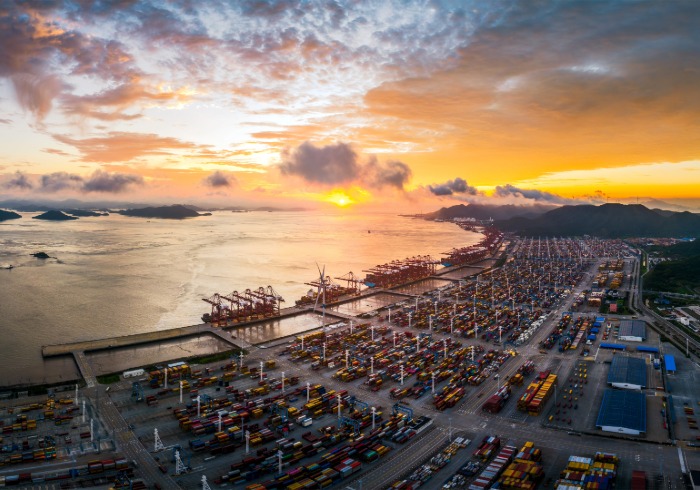The Bank of Communications has accused Chinese oil trader Sinopec, the world’s second-biggest company by revenue, of fraud in a legal row over four letters of credit (LCs) extended in 2019.
Police in Shanghai are also investigating the alleged fraud and three further LCs extended by other banks in similar circumstances, according to an October 28 judgement from Singapore’s Supreme Court. Sinopec denies the claims.
The Shanghai Public Security Bureau has detained at least four senior employees from two Sinopec subsidiaries, Sinopec Jiangsu and China Jinshan Associated Trading, in connection with the criminal probe, the judgement reveals.
The allegations have emerged through a lawsuit launched in Singapore by Sinopec against the Bank of Communications over the bank’s refusal to honour four LCs for cargoes of paraxylene, a petrochemical used primarily in the manufacturing of industrial chemicals.
The Bank of Communications, one of China’s biggest lenders, is separately suing Sinopec in Shanghai, seeking a court order allowing it not to honour the LCs. Sinopec has so far refused to receive service of the suit.
Judge Ang Cheng Hok dismissed applications by the bank to stay proceedings, but has not yet decided on Sinopec’s attempts to force the Bank of Communications to make the payments. The value of the cargoes is not disclosed in the judgement.
State-owned Sinopec did not respond to requests for comment sent to the law firm representing it, Rajah & Tann, or to its securities affairs representative listed on its US regulatory filings. Listed in Hong Kong, New York and Shanghai, the sprawling conglomerate reported a net profit of ¥33.1bn (US$5.1bn) on revenues of just over ¥2.1trn (US$328bn) in 2020.
The Bank of Communications could not be reached for comment.
Double financing allegations
The four LCs at the heart of the dispute were applied for at the Bank of Communications’ Tokyo branch by Shanghai International Holding (SIH), which planned to purchase the paraxylene from Sinopec’s Singapore subsidiary and sell it on to Hong Kong Zhong Tuo Industry Ltd, part of the Zhong Tuo group of companies.
But in mid-July 2019, when Sinopec presented documents at the Hong Kong branch of Australian lender Westpac to negotiate payment under the LCs with the Bank of Communications, the Chinese bank resisted.
It said the shipped-on-board date of the bills of lading was too far from the issuance of the LCs and that the vessels had all arrived at the discharge ports in May and June, before the contracts underpinning the LCs were entered into.
SIH told the Bank of Communications it had filed a police report in Shanghai because it was unable to locate the cargoes and suspected fraud had occurred. In mid-July, media reports suggested that Zhong Tuo was in financial strife and may be unable to pay for the chemicals.
The bank then “concluded that the cargo had already been discharged, and was of the view that the [bills of lading] were being re-used by Sinopec SG to collect payment under the LCs”, according to the judgement.
During a September meeting with the Shanghai Public Security Bureau, the Bank of Communications said it learned that the cargo had been the subject of previous contracts between Sinopec and the Zhong Tuo group.
But the bank alleges that after Sinopec realised it would not be able to receive payment from the collapsing Zhong Tuo group, it “decided to alter the documentation for the [contracts] into a sequence of deals” involving Sinopec, SIH and Zhong Tuo, which were then used to obtain the LCs.
According to the Bank of Communications’ version of events, described in the judgement, “Sinopec SG was seeking to sell the cargo and obtain payment for it twice – first from the Zhong Tuo group entities, and when it failed to do so, from [the Bank of Communications]”.
The bank also learned that police in Shanghai are investigating “three other letters of credit in respect of other contracts for the sale and purchase of paraxylene between Sinopec SG and SIH”, including two LCs issued by Bank of China’s Tokyo branch.
These contracts were entered into around the same time as the four at the centre of the dispute, and Bank of China is similarly refusing to honour them, the Bank of Communications told the court. SIH entered into “a form of insolvency proceedings” in Japan in September 2019, the judgement says.
Sinopec denies, managers detained
Sinopec denies the Bank of Communications’ claim that there was any previous contract between it and Zhong Tuo.
It says it only acted as a “credit facilitator” and bought the cargoes on behalf of another Sinopec entity, Shanghai Jinshan, whose banking facilities do not allow it to apply for letters of credit.
In turn, Sinopec Singapore had contracts to sell the cargoes to Sinopec Jiangsu, another Sinopec entity which, according to the judgement, authorised the discharging of the cargoes in April and May.
Two months later, according to the judgement, Sinopec Jiangsu novated the contracts to make the end receivers of the cargo two Zhong Tuo group entities, but that never happened because SIH stepped in as a credit facilitator for the Zhong Tuo companies, which also were unable to apply for LCs.
Sinopec says SIH should have known from the documentation that the cargo had already been discharged, and in turn the Bank of Communications should also have known from the documents presented when SIH applied for the LCs.
The lender rejected those contentions and says it received a letter in May 2021 from SIH, denying knowledge of previous contracts relating to the cargo. Sinopec disputed the authenticity of the letter.
A list of potential witnesses drawn up by the Bank of Communications includes senior executives of SIH, managers at Sinopec, police officers in the Shanghai Public Security Bureau’s economic crime department and head of trade and services at Bank of China’s Tokyo branch.
Two witnesses, Xia Sen and Sun Zhen Guo, both senior managers at Sinopec subsidiary China Jinshan, are currently detained in China, the judgement says. Shanghai police are cited as telling the Bank of Communications that Xia Sen was the “mastermind behind the case”, without providing further details. The exact involvement of China Jinshan in the transactions is unclear.
Yu Miao and Mei Hailiang, respectively the deputy director and deputy general manager of Sinopec Jiangsu, are also incarcerated as part of the criminal investigations, according to the judgement, along with Li Xiang Yang, head of a subsidiary of SIH. It is not clear how long they have been in detention.







